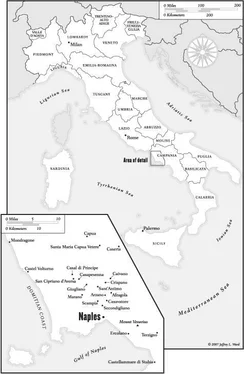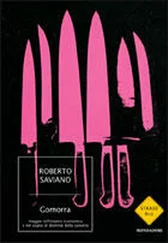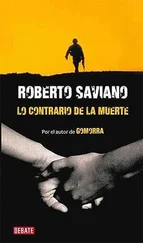Roberto Saviano - Gomorrah - A Personal Journey into the Violent International Empire of Naples’ Organized Crime System
Здесь есть возможность читать онлайн «Roberto Saviano - Gomorrah - A Personal Journey into the Violent International Empire of Naples’ Organized Crime System» весь текст электронной книги совершенно бесплатно (целиком полную версию без сокращений). В некоторых случаях можно слушать аудио, скачать через торрент в формате fb2 и присутствует краткое содержание. Жанр: Старинная литература, на английском языке. Описание произведения, (предисловие) а так же отзывы посетителей доступны на портале библиотеки ЛибКат.
- Название:Gomorrah: A Personal Journey into the Violent International Empire of Naples’ Organized Crime System
- Автор:
- Жанр:
- Год:неизвестен
- ISBN:нет данных
- Рейтинг книги:5 / 5. Голосов: 1
-
Избранное:Добавить в избранное
- Отзывы:
-
Ваша оценка:
- 100
- 1
- 2
- 3
- 4
- 5
Gomorrah: A Personal Journey into the Violent International Empire of Naples’ Organized Crime System: краткое содержание, описание и аннотация
Предлагаем к чтению аннотацию, описание, краткое содержание или предисловие (зависит от того, что написал сам автор книги «Gomorrah: A Personal Journey into the Violent International Empire of Naples’ Organized Crime System»). Если вы не нашли необходимую информацию о книге — напишите в комментариях, мы постараемся отыскать её.
Gomorrah: A Personal Journey into the Violent International Empire of Naples’ Organized Crime System — читать онлайн бесплатно полную книгу (весь текст) целиком
Ниже представлен текст книги, разбитый по страницам. Система сохранения места последней прочитанной страницы, позволяет с удобством читать онлайн бесплатно книгу «Gomorrah: A Personal Journey into the Violent International Empire of Naples’ Organized Crime System», без необходимости каждый раз заново искать на чём Вы остановились. Поставьте закладку, и сможете в любой момент перейти на страницу, на которой закончили чтение.
Интервал:
Закладка:
A surreal apartment, with neon lights and white majolica-tiled floors. A video intercom system and two entrances completely invisible from the outside. There seemed to be no way in: the doors were walls of cement that slid open along tracks. When there was the risk of a search, the boss could go through a trapdoor in the dining room to a network of interconnected tunnels—eleven all together—that formed a sort of underground redoubt or final refuge, where Sandokan had set up camp tents. A bunker within a bunker. To catch him, in 1998 the DIA staked out the place for a year and seven months, finally using an electric saw to cut through the wall into his hiding place. Only after Francesco Schiavone had given himself up were they able to identify the principal access amid the empty plastic crates and garden tools in the storage room of a villa in Via Salerno. The hideout lacked for nothing: two refrigerators were stocked with food to feed at least six people for a fortnight. A sophisticated home entertainment center—stereo, VCRs, and projectors—took up one whole wall. It took the Forensic Division of the Naples Police Department ten hours to check the alarm and lock systems controlling the two accesses. There was even a whirlpool tub in the bathroom. Schiavone lived underground, in a rabbit warren, amid trapdoors and secret passageways.
Walter, on the other hand, did not squirrel himself away. As a fugitive, he’d still show up in town for the most important meetings, returning home in the light of day, accompanied by his bodyguards, secure in the inaccessibility of his villa. The police arrested him almost by chance. They were performing the usual controls. Police and carabinieri usually go to a fugitive’s home eight, ten, twelve times a day; they check up on the family members, pay visits, search, and above all attempt to wear down their nerves and undermine their support for their relative’s decision to go into hiding. Signora Schiavone always greeted the police with courtesy and defiance, always serene as she offered them tea and cookies, which they systematically refused. One afternoon, however, Walter’s wife was already tense when they rang the bell, and by the slowness with which she opened the gate, they suspected immediately that something was up. Mrs. Schiavone kept right on their heels as they moved about the villa, rather than shouting to them from the bottom of the stairs as she usually did, her words echoing throughout the house. They found freshly ironed men’s shirts too big for her son folded on the bed. Walter was there. He’d come home. The police fanned out to search for him, catching him as he tried to scale the wall. The same wall he had had built to make his villa impregnable now prevented his quick escape. Nabbed like a petty thief flailing about in search of a hold on a smooth wall. The villa was confiscated immediately, but no one really took possession of it for six years. Walter ordered everything possible removed. If he couldn’t use it, it shouldn’t exist. Either his or no one’s. He had the doors taken off their hinges, the windows removed, the parquet taken up, the marble pulled off the stairs, the expensive fireplace mantels disassembled. Ceramic bathroom fixtures, wood railings, light fixtures, and kitchen appliances were removed, and antique furniture, china closets, and paintings carried off. He gave orders to strew the house with tires and set them on fire, ruining the plaster and damaging the columns. Even so, he managed to leave a message. The only thing left untouched was a bathtub, sitting on three wide steps in the living room. A princely version, with a lion’s face that roared water. The boss’s great indulgence. The tub sat right in front of a Palladian window that looked directly onto the garden. A sign of his power as builder and Camorrista, like an artist who cancels out his painting but leaves his signature on the canvas.
As I wandered through those blackened rooms, I felt my chest swell, as if my insides had become one giant heart. It beat harder and harder, pumping through my entire body. My mouth had gone dry from the deep breaths I took to calm my anxiety. If some clan sentinel had jumped me and beaten me to a pulp, I could have squealed like a butchered pig but no one would have heard me. Evidently no one saw me enter, or maybe no one was guarding the villa anymore. A pulsating rage rose up inside me. Flashing in my mind, like a giant swirl of fragmented visions, were the images of friends who had emigrated, joined the clan or the military, the lazy afternoons in these desert lands, the lack of everything except deals, politicians mopped up by corruption, and empires built in the north of Italy and half of Europe, leaving behind nothing but trash and toxins. I needed to vent, to take it out on someone. I couldn’t resist. I stood on the edge of the tub and took a piss. An idiotic gesture, but as my bladder emptied, I felt better. That villa was the confirmation of a cliché, the concrete realization of a rumor. I had the absurd sensation that Tony Montana was about to come out of one of the rooms and greet me with a stiff, arrogant gesture: “All I have in this world is my balls and my word, and I don’t break them for no one, you understand?” Who knows if Walter dreamed of dying like Montana too, riddled with bullets and tumbling into his front hall rather than ending his days in a prison cell, consumed by Graves’ disease, his eyes rotting and his blood pressure exploding.
It’s not the movie world that scans the criminal world for the most interesting behavior. The exact opposite is true. New generations of bosses don’t follow an exclusively criminal path; they don’t spend their days on the streets with the local thugs, carry a knife, or have scars on their faces. They watch TV, study, go to college, graduate, travel abroad, and are above all employed in the office of the mechanisms of power. The film Il Padrino, The Godfather, is an eloquent example. Before the film came out, no one in the Sicilian or Campania criminal organizations had ever used the term padrino, derived from a philologically incorrect translation of the English word godfather. The term for the head of the family or an affiliate had always been compare. After the film, however, ethnic Italian Mafia families in the United States started using godfather instead of compare and its diminutive, compariello, which fell out of use. Many young Italian-Americans with Mafia ties adopted dark glasses, pin-striped suits, and solemn speech. John Gotti himself wanted to become a flesh-and-blood version of Don Vito Corleone. And even Cosa Nostra boss Luciano Liggio jutted his chin like Marlon Brando in The Godfather when posing for photographs.
Mario Puzo’s inspiration was not a Sicilian but Alfonso Tieri, boss of Pignasecca in downtown Naples, who became the head of the leading Italian Mafia families in the United States after the death of Charles Gambino. In an interview for an American newspaper, Antonio Spavone ‘o malommo, or “bad man,” the Neapolitan boss linked to Tieri, stated, “If the Sicilians showed how to keep their mouths shut, the Neapolitans showed the world how to behave when you’re in command. To convey with a gesture that commanding is better than fucking.” Most of the criminal archetypes, the acme of Mafia charisma, were from a few square miles of Campania. Even Al Capone was originally from here; his family came from Castellammare di Stabia. Capone was the first boss to measure himself against the movies. His nickname, Scarface, from a scar on his cheek, was used by Brian De Palma for his 1983 film about Tony Montana, but Howard Hawks had used it previously for his 1932 movie about Capone. Capone and his escort would show up on the set every time there was an action scene or location shot he could watch. The boss wanted to make sure that Tony Camonte, the Scarface character he inspired, did not become trite. But he also wanted to make sure he was as much like Tony Camonte as possible; he knew that after the film’s release, Camonte would become the emblem of Capone, rather than the other way around.
Читать дальшеИнтервал:
Закладка:
Похожие книги на «Gomorrah: A Personal Journey into the Violent International Empire of Naples’ Organized Crime System»
Представляем Вашему вниманию похожие книги на «Gomorrah: A Personal Journey into the Violent International Empire of Naples’ Organized Crime System» списком для выбора. Мы отобрали схожую по названию и смыслу литературу в надежде предоставить читателям больше вариантов отыскать новые, интересные, ещё непрочитанные произведения.
Обсуждение, отзывы о книге «Gomorrah: A Personal Journey into the Violent International Empire of Naples’ Organized Crime System» и просто собственные мнения читателей. Оставьте ваши комментарии, напишите, что Вы думаете о произведении, его смысле или главных героях. Укажите что конкретно понравилось, а что нет, и почему Вы так считаете.












